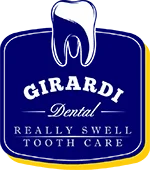What To Do If Your Dental Crown Gets Damaged?
Discovering a damaged dental crown can be an unexpected and concerning experience. Whether it presents as a minor chip, a visible crack, or has completely dislodged, immediate attention is essential. Although dental crowns are designed for durability, they are not indestructible and can be compromised by various factors. Prompt and informed action helps prevent further oral health complications. This complete guide will outline the necessary steps to manage a broken crown effectively, ensuring you maintain both comfort and dental integrity.
Common Causes of Dental Crown Damage
Dental crowns are built to last. However, several daily habits and unexpected incidents can weaken them over time.
Key reasons why crowns get damaged:
- Biting hard foods: Ice, hard candies, popcorn kernels.
- Teeth grinding: Unnoticed at night, this constant pressure wears crowns down.
- Accidental trauma: Falls, sports injuries, or sudden impact.
- Decay under the crown: Hidden cavities weaken support.
- Poor dental habits: Using teeth as tools to open packages.
Age even plays a role. Older crowns may loosen as the adhesive bond weakens. Recognizing these causes helps in avoiding future mishaps.
Signs Your Dental Crown Might Be Damaged
Not all crown damage is dramatic. Sometimes, it starts small. Here’s how you can spot trouble early:
- Sudden sensitivity: Hot, cold, or sweet foods trigger discomfort.
- Rough or sharp edges: The Tongue feels a chipped spot.
- Loose feeling: The Crown feels wobbly while eating or speaking.
- Pain when biting down: Signals possible cracks.
- Visible crack or chip: Obvious signs that need attention.
If you notice any of these, it’s wise to seek assessment and treatment for the damaged crown before it worsens.
Immediate Steps to Take When Your Crown Gets Damaged
So, your crown just broke. Here’s exactly what you should do — no guesswork needed:
- Stay calm: Panic doesn’t help. Assess the situation.
- Remove loose fragments: Prevent swallowing or choking.
- Rinse with warm salt water: Keeps the area clean.
- Check for pain or bleeding: If present, avoid chewing on that side.
- Use dental wax or sugarless gum: Cover sharp edges temporarily to protect your tongue and cheek.
- Avoid too hard or sticky foods: Stick to soft meals until you get professional help.
These steps are crucial in preventing further damage or infection until you reach an emergency dentist near you.
When to See Your Dentist for a Damaged Crown
Don’t play the waiting game. Acting fast can prevent complications. Here’s when you must call your dentist in St Catharines immediately:
- Severe pain or a toothache beneath the crown.
- The crown completely fell off and exposed your tooth.
- Bleeding gums around the crown area.
- Difficulty chewing or speaking.
Delaying treatment risks more than just discomfort. Exposed teeth are vulnerable to decay and infection. Your dental team can assess whether it’s a simple fix or needs more attention.
Possible Repair or Replacement Options
Once at the clinic, your dentist will evaluate the extent of the damage. Depending on the situation, here’s what might happen:
Minor Damage
- Polishing sharp edges: For small chips.
- Dental bonding: Repairs small cracks or chips with composite resin.
Moderate to Severe Damage
- Crown recementation: If the crown is intact but dislodged.
- Crown replacement: For large fractures or decay beneath the crown.
In certain cases, when the underlying tooth structure has been weakened, additional procedures such as a root canal or core build-up may be necessary before securing a new crown. Addressing these issues promptly ensures a stable foundation for lasting results. If you’re dealing with a broken crown, trust our skilled team to preserve your smile with precision, care, and attention to detail. Your oral health deserves professional solutions tailored to your needs.
How to Prevent Future Crown Damage
Prevention is always better than a cure. You can protect your crown (and your wallet) with a few simple habits:
- Skip hard foods: Opt for crown-friendly meals.
- Wear a night guard: Especially if you grind teeth during sleep.
- Practice good oral hygiene: Brush twice daily and floss gently around the crown.
- Regular dental checkups: Detects early signs of wear or decay.
- Avoid using teeth as tools: Scissors exist for a reason.
These small steps keep your crowns functional and long-lasting.
Final Thoughts
A damaged dental crown may seem alarming, but with prompt action and professional care, it can be resolved efficiently. Recognizing early signs, taking immediate protective steps, and scheduling timely dental visits are key to safeguarding your oral health. Preventive habits further ensure the longevity of your restorations. If you are experiencing issues with your crown, trust the dedicated team at Girardi Dental for guidance and precise treatment. Our priority is to restore your comfort and maintain your confident smile. Do not wait for minor concerns to escalate. Contact us today to schedule your consultation and receive the attentive care your smile deserves. Let us help you get back to eating, speaking, and smiling with ease and confidence.

